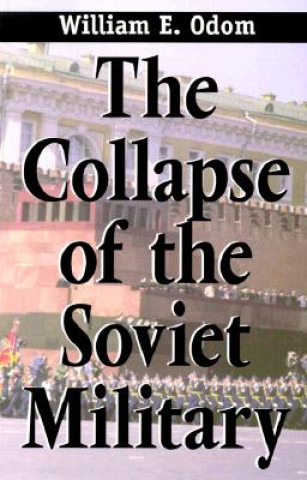
Doručení
Nákupní rádce





Nehodí se? Vůbec nevadí! U nás můžete do 30 dní vrátit
 Dárkový poukaz
V libovolné hodnotě
Dárkový poukaz
V libovolné hodnotě
S dárkovým poukazem nešlápnete vedle. Obdarovaný si za dárkový poukaz může vybrat cokoliv z naší nabídky.
Collapse of the Soviet Military
 Angličtina
Angličtina
 131 b
131 b
30 dní na vrácení zboží
Mohlo by vás také zajímat


In this text, a United States Army officer and scholar traces the rise and fall of the Soviet military, arguing that it had a far greater impact on Soviet politics and economic development than was perceived in the West. The author asserts that Gorbachev saw that shrinking the military and the military-industrial sector of the economy was essential for fully implementing perestroika and that his efforts to do this led to the dissolution of the Soviet Union. Odom enhances his account with interviews with key factors in the Soviet Union before, during and after the collapse. He describes the condition of the Soviet military during the mid-1980s and explains how it became what it was - its organizational structures, manpower policies, and military-industrial arrangements. He then moves to the events that led to its destruction, taking us to the most secret circles of Soviet policy making, as well as describing the public debates, factional struggles in the new parliament, and street combat as army units tried to repress the political forces unleashed by glasnost. Odom shows that just as the military was the ultimate source for the multinational Soviet state, the communist ideology justified the military's priority claim on the economy. When Gorbachev tried to shift resources from the military to the civilian sector to overcome economic stagnation, he had to revise the official ideology in order to justify removing the military from its central place. Paralyzed by corruption, mistrust and public disillusionment, the military was unable and unwilling to intervene against either Gorbachev's perestroika or Yeltsin's dissolution of the Soviet Union.
Informace o knize
 Angličtina
Angličtina
Kategorie




 Jak nakupovat
Jak nakupovat

































